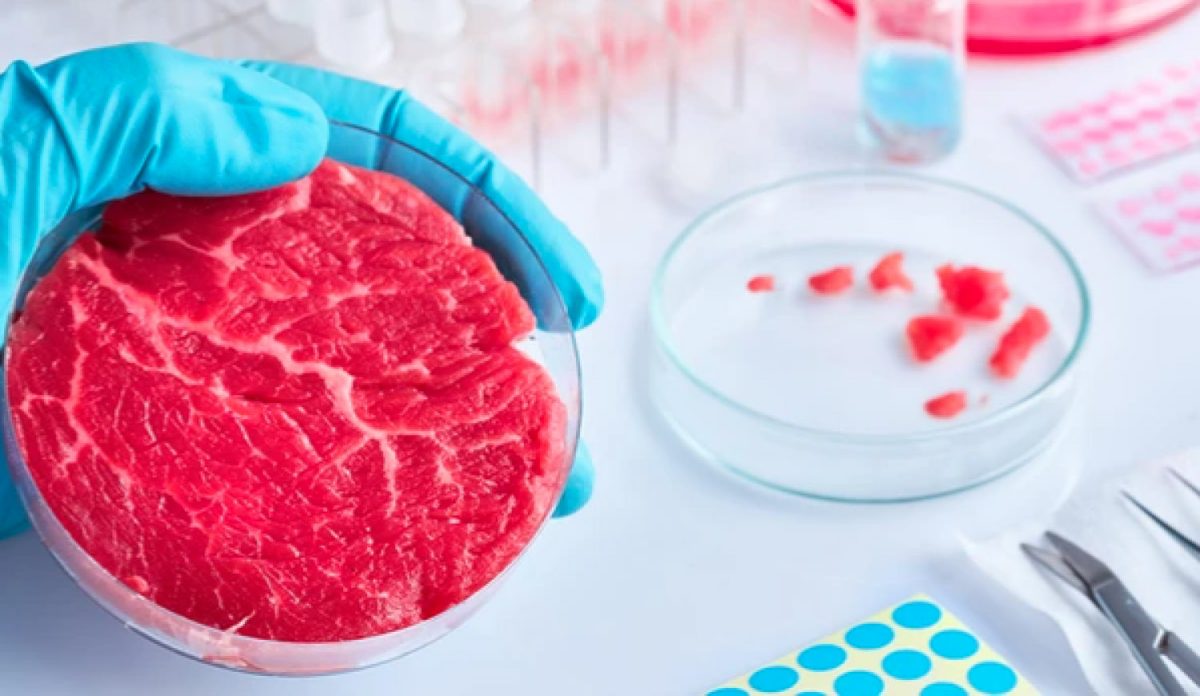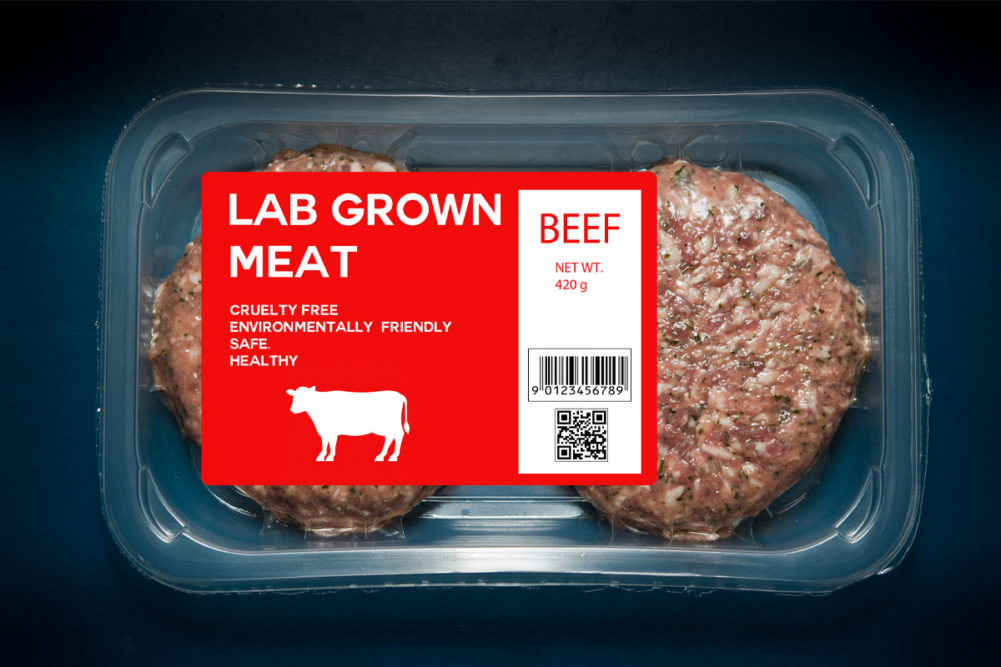The United States is moving closer to allowing the sale of lab-grown meat made from animal cells, including chicken. Good Meat, the company behind this innovative chicken product, made an announcement on Tuesday regarding its receipt of a 'no questions' letter from the Food and Drug Administration (FDA). This letter confirms that the FDA has reviewed and approved the safety of the product for sale in the US. Another company, Upside Foods, received a similar letter from the FDA in November for their meat made from cultured chicken cells.
While receiving the 'no questions' letter from the FDA is a significant milestone, it is important to note that consumers will not be able to purchase lab-grown meat products just yet. Good Meat and Upside Foods must still obtain approval from the US Department of Agriculture before their products can be sold to the public.
Related: Uber deploys redesigned app with iPhone features

Good Meat acknowledged the significance of receiving the 'no questions' letter from the FDA, stating that it is a crucial step towards making their product available to restaurants and retailers in the US. The company also mentioned in a statement on Tuesday that they are currently collaborating with the US Department of Agriculture to obtain the necessary approvals for their lab-grown meat product to be sold to consumers.
Good Meat promotes its product as 'meat without slaughter,' which offers a more ethical and humane approach to consuming meat. Supporters of lab-grown meat believe that it has the potential to help combat climate change by decreasing the reliance on traditional animal agriculture, which is a significant source of greenhouse gas emissions. Cultivated or lab-grown meat is produced in a vat, similar to the ones used in beer breweries.
Good Meat has announced that once their product receives USDA approval, chef and board member José Andrés will introduce the lab-grown meat at a restaurant in Washington, D.C. At this time, there is no specific timeline for when USDA approval will be granted to either Good Meat or Upside Foods. However, internationally, the approval process is moving at a quicker pace.
Good Meat's cell-based chicken was approved for sale in Singapore in 2020, and has already been available at various restaurants in that country. Josh Tetrick, CEO of both Good Meat and Eat Just, stated in an email to CNN that it is exciting to bring the concept of 'chicken without slaughter' to the United States, especially after two years of success in Singapore.
Related: AI brings a new era of food
An examination of lab-grown meat
Lab-grown meat, which is also referred to as cultured or cell-based meat, is a cutting-edge food technology that involves producing meat by cultivating animal cells, rather than relying on traditional livestock farming methods. While this approach offers numerous benefits in terms of environmental sustainability, ethical considerations, and potential health advantages, there are also some challenges and drawbacks that need to be addressed and discussed.
The benefits of lab-grown meat
Below we’ll outline the benefits of lab-grown meat.
Environmental sustainability
One of the significant benefits of lab-grown meat is its positive impact on environmental sustainability. This innovative technology reduces the environmental impact of traditional livestock farming by consuming fewer natural resources such as land and water, and generating lower greenhouse gas emissions. Adopting lab-grown meat can help mitigate the harmful effects of livestock farming on climate change, deforestation, and biodiversity loss, making it a promising solution for promoting sustainability.
Ethical considerations
Animal welfare is a significant ethical concern associated with traditional meat production. Lab-grown meat offers a solution to this concern by eliminating the need for raising and slaughtering animals, thereby providing an alternative for consumers who seek cruelty-free options. This technology offers a promising solution for those who prioritize animal welfare and wish to reduce their consumption of animal products while still enjoying the taste and texture of meat.
Health benefits
Cultured meat has the potential to offer a healthier nutritional profile compared to traditional meat products, with options for reduced saturated fat content or increased beneficial nutrients such as omega-3 fatty acids. Additionally, it can help prevent the spread of foodborne illnesses, as it is produced in a controlled, sterile environment that minimizes the risk of contamination by pathogens. These benefits make lab-grown meat a promising option for consumers who prioritize their health and safety.

The drawbacks associated with lab-grown meat
The following are a few drawbacks that industries will need to address before lab-grown meat makes it into mainstream culture.
Cost and scalability
As a relatively new technology, lab-grown meat is still expensive to produce, which may limit its accessibility and widespread adoption. Although costs are expected to decrease as the technology advances, significant investments in research and development are required to achieve economies of scale.
This will require a considerable amount of time and resources, and it may take some time before lab-grown meat becomes more affordable and accessible to the average consumer. However, as the technology continues to improve and production costs decrease, it has the potential to become a viable alternative to traditional meat products.
Consumer acceptance
Despite its numerous benefits, some consumers may be hesitant to embrace lab-grown meat due to concerns about its taste, texture, and perceived 'unnaturalness.' Public education and awareness campaigns will be essential to overcome these barriers and build consumer trust. By providing information about the safety, sustainability, and potential health benefits of lab-grown meat, consumers can make informed decisions and feel more comfortable trying this innovative food technology.
It will be crucial to engage with consumers, address their concerns, and provide transparent information about how lab-grown meat is produced, so they can make informed decisions about its suitability for their dietary preferences and ethical values.
Regulatory hurdles
The regulatory frameworks for lab-grown meat are still evolving, and the lack of clear guidelines may slow down its development and market entry. Ensuring that the product meets safety, labeling, and quality standards across different countries could be challenging and time-consuming. The development of clear regulations and guidelines for lab-grown meat will be essential to ensure its safety and marketability.
This will require collaboration between industry stakeholders, policymakers, and regulatory agencies to establish consistent standards that can be applied across different regions and countries. To promote global acceptance and adoption of lab-grown meat, it is crucial to develop regulatory frameworks that foster innovation while also ensuring that the product meets all necessary safety and quality standards.

Lab grown meat is either the future or a niche blemish on society’s history
Lab-grown meat has the potential to offer a promising alternative to traditional meat production by reducing its environmental impact, addressing animal welfare concerns, and offering health benefits. However, there are significant challenges that need to be addressed for it to become a widely adopted and viable option. These challenges include cost, consumer acceptance, and regulatory hurdles.
As the technology continues to advance, the balance between benefits and drawbacks will likely shift, potentially paving the way for a more sustainable and ethical food system. The continued development and promotion of lab-grown meat will require collaboration between industry, policymakers, and consumers to overcome these challenges and promote a more sustainable and ethical food system.
Thank you for being a Ghacks reader. The post Lab-Grown Meat: Challenges and Opportunities for a Sustainable and Ethical Food System appeared first on gHacks Technology News.
0 Commentaires